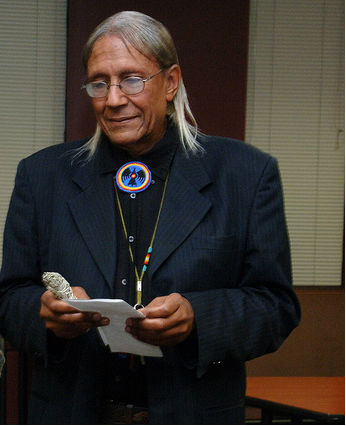By Bobby Allyn, Nashville Public Radio

Native American activists are asking Nashville Mayor Karl Dean to halt the construction of a new minor league baseball stadium after archeologists discovered ancient artifacts. One Native American activist said a lawsuit could follow if the city ignores their demands.
Activist Albert Bender writes about Native American history for a living. He said more time should be given to archeologists to study the site. Bender considers next spring’s scheduled opening date of the new $150-million-dollar Sounds Stadium to be arbitrary.
“What is the problem with halting the construction of the ballpark for a few months to a year, when we’re talking about thousands of years of history that is waiting to be unearthed?” Bender asks.
What archeologists dug from the earth were ancient pottery used to boil water in the production of salt, which was then exported around the South some 800 years ago.
Archeologists will publish a detailed analysis of all findings form the site next month.
Last week, Bender presented the mayor with a list of demands. If the stadium construction isn’t put on pause, Bender would like to see the site at least commemorated in some way.
Among his suggestions is the development of an “interpretative center” in which the artifacts could be publicly viewed in a separate museum-like building.
“This is something we’re considering,” said Bonna Johnson, spokeswoman for Mayor Karl Dean. “We’ve asked the ballpark project team to look at ways to pay homage to the Native American history in that area. We will continue conversations with the Native American groups that approached us about this and work toward a solution.”
Bender says his American Indian Coalition, which is not an incorporated group, represents “all Native Americans who feel the way we do,” but it does to have an official member count.
Bender, who is an attorney but not licensed to practice in Tennessee, says suing over the matter is not out of the question.
“To my knowledge, this is the first time anything of this nature has ever been found in the state of Tennessee, or any where in the South” said Bender, who is writing a book on Native American history. “There is so much knowledge to be gained form this site, and we feel it far outweighs any artificial schedule, rush schedule, for the completion of the ballpark.”
A similar battle unfolded in Miami recently, where preservationists convinced developers to redesign a long-planned hotel to include a display of an ancient Native American village discovered during construction. The battle delayed the project for weeks and generated international attention.
Bender said the Miami case has many parallels with Nashville’s, and he said the success of preservationists there could embolden his own effort.
